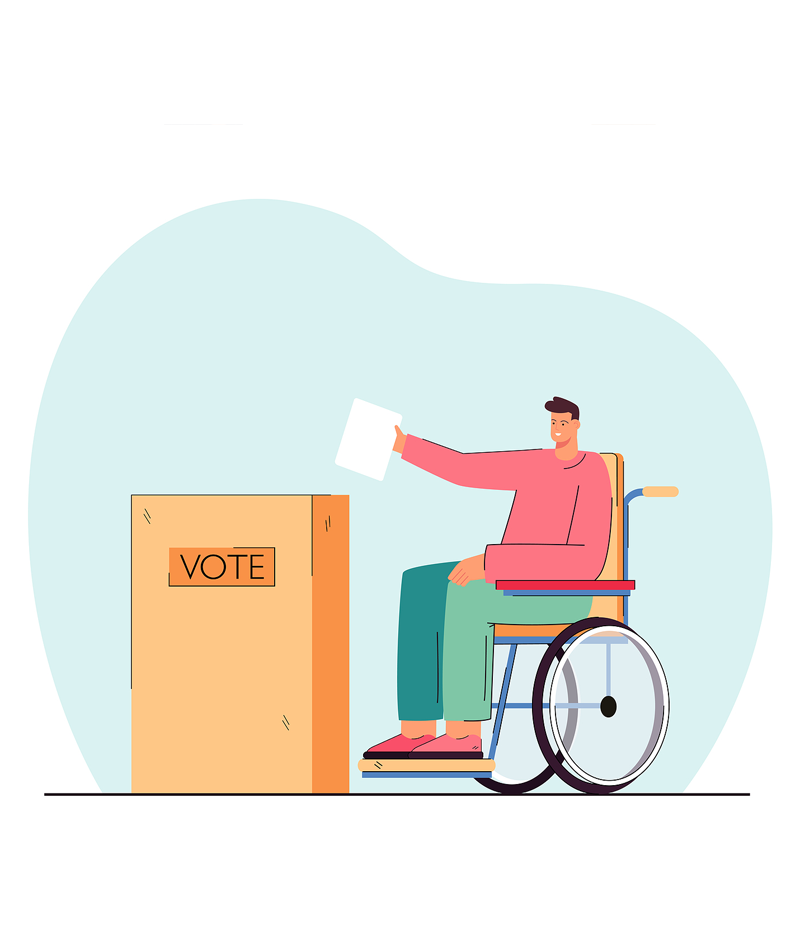For decades, Congress took important steps to affirm and secure the right of people with disabilities to a life in the community and to achieve that vision. We must continue that forward movement. The vision is based on social justice and civil rights and is also affordable. All branches of the federal government play critical roles in ensuring that the civil rights of persons with disabilities are realized, and the goals below should be considered broadly on how they can be achieved through legislative, regulatory, and other administrative action. It is critical that the White House have positions devoted to disability outreach, engagement, and policy. People with disabilities want to live, learn, work, pay taxes, and be productive and fully included in their communities. People would rather live in the community than in nursing homes or institutions.
People with disabilities, individually and collectively, offer an important and needed voice in our nation. Ensuring voting independence, accuracy, and access continue to be key issues for this constituency. Access to the ballot is critical for democracy, yet people with disabilities often face substantial obstacles to exercising their right to vote. The Help America Vote Act (HAVA) required fully accessible voting machines for people with disabilities by January 1, 2006. This promise has not been fulfilled. Too many polling places and voting technologies and practices throughout the country remain inaccessible and continue to disenfranchise voters.

